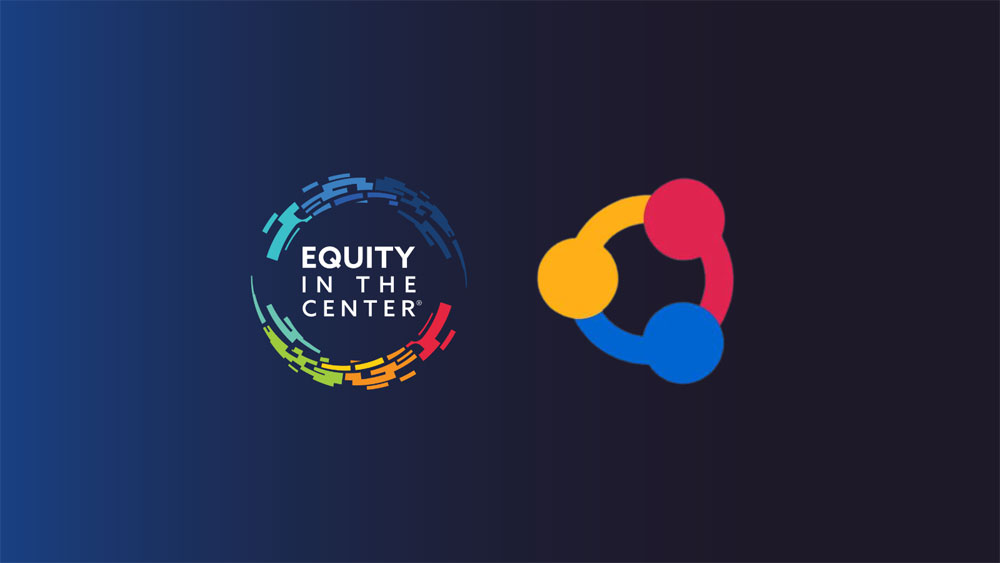A Founder’s Reflections on Pausing and Transitioning

POSTED ON SEPTEMBER 9, 2019
By Amy Mandel (Bio below)
During our “pause for the cause,” AMKRF has entered a time of organizational reflection and analysis building. As a part of our work, we are sharing reflections about what we’ve learned in the process of building relationships with one another and analyzing power, white supremacy, oppression, alongside liberation.
I’ve been spending time reflecting on some big questions lately: What is the value of building relationships and internal culture for an organization like ours? How has the internal work we’ve done as a team impacted our external work? And how has this work aided our journey toward a new organizational structure and a forthcoming leadership transition?

A year ago, we began working with Beth Trigg and Tamiko Ambrose-Murray to build a team culture centered on a shared set of values. We built analysis together and in community. We envisioned and launched an extensive community-based research process. Our grantmaking and programming will be forever changed because of this work.
But because of Tamiko and Beth’s work with us, I have changed. And the way the rest of the team shows up has changed.
When the “pause for the cause” idea emerged, I began to think about the Center for Participatory Change (CPC). I had heard about CPC’s transition process–how they had learned to have the hard conversations and continue to build trust. I wondered how our team could be changed by a similar process. I have long admired CPC because my sense is that their values are not only reflected in what they do but how they do it. Since I first started having contact with CPC staff, I was heartened by the way they bring their whole selves to their work. I want this for AMKRF because I believe that “whole selves” make the most impactful change.
It’s hard to say exactly what has made our internal work and the community research process so impactful. But several things stand out. As consultants and guides, Tamiko and Beth co-created a deeply intentional process grounded in relationship building and ritual. They insisted that we take the time we needed to grow and to let things percolate.They brought incredible faith in me and in the staff. Throughout, they held onto the possibility that AMKRF could go from where we have been to where we want to go.
This process has taught me so much. Here’s some of what I have learned that I want to share with my friends and colleagues doing this work…
Relationship building pays off. Alongside our community research, staff have spent time building relationships with each other. Each team member demonstrated tremendous willingness to show up, even when our conversations were difficult. We’ve added several practices to our culture. We do personal check-ins at the beginning of each meeting. We eat lunch together in a social way once a month to keep up on each others’ personal lives, joys, and challenges. We’ve incorporated ritual and reflection into some of our meetings to set the tone for the space we want to hold. This work has morphed us from a bunch of individuals to a functioning team.
Trust is indispensable. As we spend time together, we are learning each other’s personalities and vulnerabilities. Trust is growing in ways that are beginning to allow us to talk about more difficult things.
Real relationships built on trust are crucial to building alliances and collaborations and, ultimately, to changing hearts and minds. This is something our facilitators, Tamiko and Beth, have modeled for us beautifully. As our trust deepens, we have been able to experiment with a new decision making model, we call the advice model. It allows us to work more seamlessly, for staff to have greater autonomy, and for community to have greater voice in our decision making processes.
Directness is critical. The niceness that has been bred into white women through patriarchy and white supremacy was entrenched in our organization. It got in our way. The learned tendency to protect each other’s feelings leads to indirect communication. Our entire team is becoming more direct about what we each see, want, and need for the organization to function. I have learned that if we commit to being direct and honest that our conversations, although sometimes challenging, lead to more points of view being expressed, which make our work stronger.
Time is a friend. Fear of not responding adequately to the real crisis of this time can prevent those of us in movement and nonprofit work work from taking our time: How can it be ok to slow down when the needs of our grantees and our community are so great and the world seems to be on fire? This culture breeds a deep sense of urgency–Be productive. Get it done. Do it fast so you can do more. Do it perfectly. In the past, this intensive pressure led us to replicate oppressive dynamics in our grantmaking and programming.To keep us from knee-jerk responses and to ground our work, we need to slow down. Building anti-oppressive ways of being takes time. The time is worth it.
Embrace messiness. This pause for the cause has been so non-linear. Internal work happened alongside community research. Pilot programs were launched to distribute funding in the interim. A new staff person was onboarded, and we began conversations about what a new structure of leadership might look like. It’s been a messy process, which has challenged the perfectionism that was embedded in our organizational culture. Perfectionism requires that we overdeliver and, in the process, suppress some parts of ourselves. This bringing-the-whole-self work is NOT easy. It’s messy and uncomfortable, but it is real and productive. It feels atypical, and yet feels so very healthy. For the first time, it feels like our work is sustainable. And as we embrace the messy, we are able to find new ways, better ways, to do philanthropy and support local leaders.
What’s Next?
When we started our journey, I felt proud of my work as AMKRF’s founder and visionary, yet I was increasingly working at the edge of my capacity to manage and implement AMKRF’s vision. A significant period of time has passed since I was working on the ground as a community organizer. There are gaps in my own skill set and limits to what I can see because of my own identity as a wealthy, white woman who was born into money. I needed others to expand the vision and take it to places I could not even see.
I’ve known for awhile that a leadership transition is necessary to take AMKRF to the next place. At first, I felt this as a loss. Now that we are here, it just feels right.
I don’t know exactly what is next for me as my role shifts, but I trust that my involvement will continue to be satisfying. A shift in power is what is needed for our next chapter.
Over our time working together, Tamiko shared, “I know when the work I am doing with organizations is transformative when I am transformed.”
I can truly say now that the work of AMKRF has transformed me and ultimately that leaves me with hope about what’s next.
La reflexión de una fundadora sobre la pausa y la transición
Por Amy Mandel (Bio abajo)
Durante nuestra “pausa por la causa”, AMKRF ha entrado en un tiempo de reflexión organizacional y de desarrollo de análisis.Como parte de nuestro trabajo, estamos compartiendo reflexiones acerca de lo que hemos aprendido en el proceso de construcción de relaciones entre nosotrxs y analizando el poder, la supremacía blanca y la opresión, junto con la liberación.

Últimamente he pasado tiempo reflexionando sobre algunas preguntas grandes: ¿Cuál es el valor de construir relaciones y una cultura interna para una organización como la nuestra? ¿Cómo ha impactado el trabajo interno que hemos realizado como equipo a nuestro trabajo externo? ¿Y cómo ha ayudado este trabajo en nuestro recorrido hacia una estructura organizacional nueva y a una transición hacia un próximo liderazgo?
Hace un año empezamos a trabajar con Beth Trigg y Tamiko Ambrose-Murray para construir un equipo centrado en la cultura compartida de un conjunto de valores. Nosotrxs construimos análisis juntxs y en comunidad. Visualizamos e iniciamos un proceso de investigación amplio basado en la comunidad. Nuestra programación y sistema de entrega de becas nunca serán los mismos gracias a este trabajo.
Pero yo he cambiado gracias al trabajo que Tamiko y Beth han realizado con nosotrxs. Y la manera en la que el resto del equipo aparece ha cambiado también.
Cuando la idea de “una pausa por la causa” apareció, comencé a pensar en el Center for Participatory Change (CPC). Había escuchado del proceso transición de CPC – en el que ellxs habían aprendido a tener esas conversaciones difíciles y continuaban construyendo confianza.He admirado a CPC por mucho tiempo porque siento que sus valores no solo se reflejan en lo que hacen sino también en como lo hacen. Desde que empecé a tener contacto con el personal de CPC, me reconfortaba en la manera en que traían todo su ser al trabajo que realizaban. Esto es lo que quiero para AMKRF porque creo que “todo nuestro ser”es lo que crea el cambio más impactante. Había escuchado del proceso de CPC – en el que ellxs habían aprendido a tener esas conversaciones difíciles y continuaban construyendo confianza. Me preguntaba cómo nuestro equipo podría cambiar al usar un proceso similar.
Es difícil decir exactamente que es lo que ha hecho que esta experiencia tenga tanto impacto. Pero varias cosas sobresalen. Como consultoras y guías, Tamiko y Beth co-crearon un proceso profundo e intencional basado en la construcción de relaciones y en un ritual. Ellas insistieron en que nos tomáramos el tiempo que necesitáramos para crecer y dejar que las cosas se filtraran. Nos trajeron mucha fe no solo a mí sino a todo el personal. A través de esto, ellas mantuvieron la posibilidad de que AMKRF pudiera ir de donde hemos estado a donde queremos ir.
Este proceso me ha enseñado mucho. Aquí hay algo de lo que he aprendido y que quiero compartir con mis amigxs y colegas haciendo este trabajo…
La construcción de relaciones da sus frutos. Junto a nuestra investigación comunitaria, el personal ha pasado tiempo construyendo relaciones les unxs con les otrxs. Cada miembrx del equipo demostró tremenda voluntad para presentarse, aun cuando nuestras conversaciones eran difíciles. Hemos agregado varias prácticas a nuestra cultura. Hacemos chequeos personales al inicio de cada reunión. Almorzamos juntxs de una manera social una vez al mes para mantenernos al tanto de nuestras vidas personales, nuestras alegrías y desafíos. Hemos incorporando el ritual y la reflexión en unas de nuestras reuniones para establecer el tono del espacio que queremos tener. Este trabajo nos ha transformado al pasar de ser un montón de individuxs a ser un equipo funcional.
La confianza es indispensable. A medida que pasamos tiempo juntxs, estamos aprendiendo de cada una de nuestras personalidades y vulnerabilidades. La confianza esta creciendo de maneras que nos esta empezando a permitir hablar sobre cosas mas difíciles.
Las relaciones reales construidas bajo la confianza son cruciales para crear alianzas y colaboraciones, y finalmente a cambiar los corazones y las mentes. Esto es algo que nuestras facilitadores, Tamiko y Beth, han modelado para nosotrxs de manera hermosa. A medida que nuestra confianza se profundiza, hemos podido experimentar con un nuevo modelo para tomar decisiones. Lo llamamos el modelo de asesoramiento. Este nos permite trabajar sin problemas, para que el personal tenga una mayor autonomía y para que la comunidad tenga una voz mayor en nuestro proceso de toma de decisiones.
La franqueza es crítica. La amabilidad que se ha generado dentro de las mujeres blancas a través del patriarcado y la supremacía blanca estaba arraigada en nuestra organización. Se metió en medio de nosotrxs. La tendencia aprendida para proteger los sentimiento de cada unx lleva a la comunicación indirecta. Nuestro equipo completo se está volviendo más directo sobre lo que vemos, lo que queremos y necesitamos para que la organización funcione. He aprendido que aunque nuestras conversaciones sean difíciles, si nos comprometemos a ser directxs y honestxs, esto nos llevara a que más puntos de vista sean expresadas; lo cual hace que nuestro trabajo sea mas fuerte.
El tiempo es un amigo. El miedo a no responder adecuadamente a la crisis real de este tiempo, puede prevenir a aquellxs de nosotrxs que hacemos movimiento y trabajo sin fines de lucro a que nos tomemos nuestro tiempo: ¿Cómo puede estar bien desacelerar cuando las necesidades de nuestrxs becarixs y nuestra comunidad son tan grandes y el mundo parece estar incendiado? Esta cultura genera un sentido profundo de urgencia — Sé productivx. Hazlo. Hazlo rápido para que puedas hacer más. Hazlo de manera perfecta. En el pasado, esta presión intensiva nos llevaba a replicar dinámicas opresivas en la entrega de nuestras becas y nuestra programación. Necesitamos parar para poder mantenernos alejadxs de las respuestas irreflexivas y enfocarnos en enraizar nuestro trabajo. La construcción de diferentes maneras anti opresivas lleva tiempo. El tiempo vale la pena.
Acepta el desorden. Esta pausa por la causa no ha sido linear. El trabajo interno sucedió junto con la investigación comunitaria. Los programas pilotos se lanzaron para distribuir los fondos en el intermedio. Se unió una nueva persona a nuestro personal y empezamos conversaciones sobre como se podría ver una nueva estructura de liderazgo. Ha sido un proceso desordenado, lo cual ha retado el perfeccionismo que estaba incrustado en nuestra cultura organizacional. El perfeccionismo requiere que demos en exceso y en el proceso suprimimos algunas partes de nosotrxs mismxs. Este trabajo de traer todo el ser NO es fácil. Es desordenado e incomodo pero real y productivo. Se siente atípico y aun así es muy saludable. Por primera vez, se siente que nuestro trabajo es sostenible, Y a medida que aceptamos el desorden, somos capaces de encontrar nuevas y mejores maneras para hacer el trabajo de filantropía y de apoyar a lxs lideres locales.
¿Qué sigue?
Cuando empezamos nuestro recorrido, me sentía orgullosa de mi trabajo como fundadora y visionaria de AMKRF. Aún así estaba trabajando al borde de mi capacidad para administrar e implementar la visión de AMKRF. Ha pasado un periodo de tiempo significativo desde que estuve trabajando en el campo como organizadora comunitaria. Hay brechas en mis propias habilidades y limitaciones de lo que puedo ver debido a mi propia identidad como una mujer blanca, adinerada que nació con dinero. Yo necesitaba que otras personas expandieran la visión y la tomaran a lugares que yo no podía ver.
He sabido por un buen tiempo que una transición de liderazgo es necesaria para llevar a AMKRF a su próximo lugar. Primero, sentí esto como una perdida. Ahora que estamos aquí, se siente muy bien.
No sé exactamente que es lo que sigue para mí a medida que mi rol cambia pero confío en que mi involucramiento continuara siendo satisfactorio. Un cambio en el poder es lo que se necesita para nuestro próximo capitulo.
Durante nuestro tiempo trabajando juntxs, Tamiko compartió, “Yo sé que el trabajo que estoy haciendo con las organizaciones es transformativo cuando yo me transformo”
Puedo decir ahora sinceramente que el trabajo de AMKRF me ha transformado y finalmente me deja con esperanza sobre lo que sigue.

Amy Mandel,
Founder and Funder,
The Tzedek Social Justice
Amy was born into a Jewish family in Cleveland, Ohio in the earIy 1950s. She moved to the Boston area to attend Brandeis University and stayed in the area for 32 years. Her first exposure to social justice activism came through reading about the resistance to the Holocaust in the fifth grade. Throughout Amy’s college years she was involved in anti-Vietnam protests. She participated in the second wave of the U.S. women’s movement and the growing post-Stonewall LGBT movement. Amy has become increasingly focused on efforts to build bridges between and alliances among communities that have traditionally been at odds. This focus includes supporting efforts that integrate voices and issues of marginalized groups into mainstream progressive organizations. Amy and her partner Katina have been together since 1991 and were legally married in Massachusetts in 2009. In 2001, they moved to Asheville and have never regretted it. They both feel firmly planted in their new community. These days Amy enjoys spending time with their granddaughter, friends, and family; playing piano; practicing qigong; witnessing the effective work and impact of the Tzedek Social Justice Fellows; and, after a long hiatus due to illness, singing once again with her beloved community women’s chorus, Womansong of Asheville.



